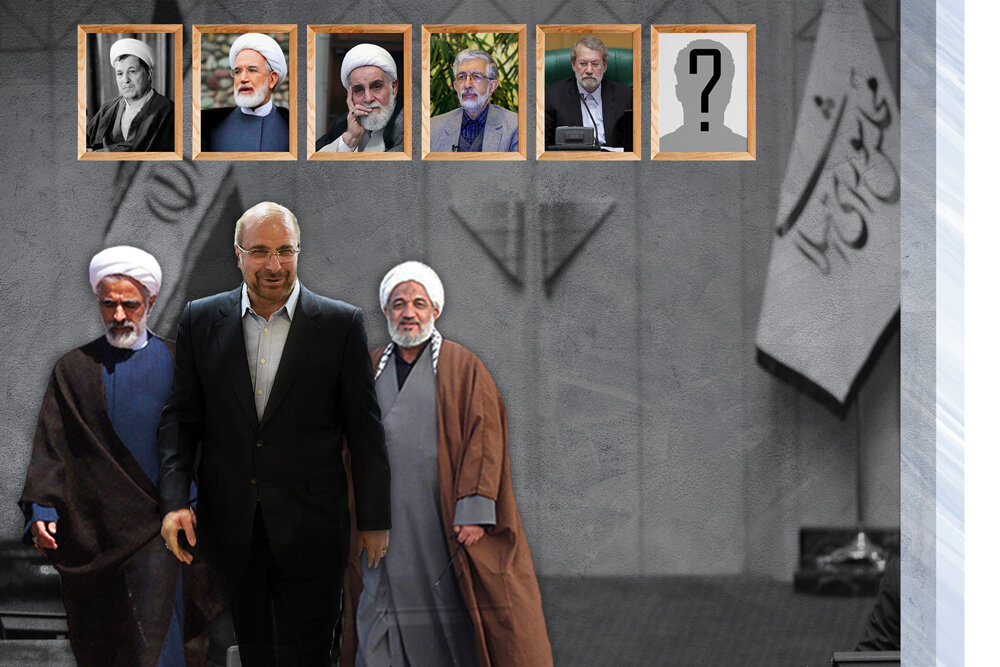Who will be next speaker?

TEHRAN- From a long time ago, political factions had saddled their horses to partake in the marathon of parliamentary race on Feb. 21.
The factions have been utilizing their entire capacities to announce a suitable arrangement of candidates and programs to line up for the Friday polls in order to win more seats in the Baharestan green pyramid (a common name for the Majlis).
However, and as always, the most determinant seat in the parliament is no one’s seat but the speaker’s.
Following various levels of differences, the political factions lined up and released their list of candidates.
On one hand, the reformists, as the main supporter of the current government, have entered the race with different lists, including those by Kargozaran Sazandegi (Servants of Construction Party) and Etelaf Barayeh Iran (Coalition for Future of Iran).
Kargozaran Sazandegi’s list has been titled Yaran-e Hashemi (Supporters of Hashemi Rafsanjani). Majid Ansari is heading the list. Ansari was President Hassan Rouhani’s deputy for legal affairs. Currently is a member of the Expediency Council.
Etelaf Barayeh Iran’s list includes candidates from eight different parties and groups. The list is not headed by a certain candidate. Some figures, including sitting MPs Alireza Mahjoub and Mostafa Kavakebian, and the secretary general of Mardomsalari Party (Democracy Party) are among the senior candidates of the list.
The mentioned lists include candidates who are reformists and have been supporter of the Rouhani government.
On the other hand, the principlists and those parties who have been criticizing the current government, managed to reach a partial consensus and presented a united list titled Iran-e Sarboland (Proud Iran). Mohammad Baqer Qalibaf is heading the list.
Qalibaf, who was Tehran’s mayor for 12 continuous years, police chief and a presidential contender for two rounds (2005 and 2013), is the chief figure of the list.
Iran-e Sarboland covers most of the factions that are critical of the government.
Of course, a group of the principlists acted like the previous elections and separated their way from the main principlist groups. It has presented a list titled Jebhey-e Paydari (Resilience Front). Morteza Aqa Tehrani is heading the list.
Aqa Tehrani represented Tehran in the 8th and 9th parliaments. He is now the secretary general of the Jebhey-e Paydari Party.
Now that the factions have released the list of their candidates, speculation and anticipation over possible supremacy of one list over another is a heated debate across the country.
Based on a survey conducted by a reliable academic center across the country that its results published on Feb. 10, %57 percent of the electorate will vote for the Iran-e Sarboland list led by Qalibaf.
According to the survey, only %27 of the people will vote for reformists and pro-government candidates, who are backed by former president Mohammad Khatami.
It should be mentioned that most of the surveys conducted by the abovementioned academic center about the outcomes of elections, including 2018 presidential polls, have come true.
It is worthy to say that in this round of parliamentary elections, lists of Yaran-e Hashemi and Etelaf Barayeh Iran are pro-Mohammad Khatami and Hassan Rouhani.
In addition to scientific surveys, analyses by Western institutes have predicted that principlists will form the majority in the next parliament.
In President Rouhani’s press conference on Sunday, Franc 24 reporter said, “Anticipations show that the president, in his last year in the office, must work with a parliament whose majority of its seats belong to the principlists, who are openly opposing most of the president’s policies.”
The anticipation has led to widespread presumption in different media outlets.
Following release of the factions’ lists, media outlets and elites have started to express views over the possible winners in the polls. They will also start to write about the new parliament speaker, who will play a key role in the Majlis and interaction with the government.
A glance at the characteristics of those who sat at the speaker’s seat in previous parliaments show that the chance has gone to distinguished and nationally-accepted figures since 1979.
Akbar Hashemi Rafsanjani was the speaker of the 1st, 2nd and 3rd parliaments. Rafsanjani was a veteran revolutionary who was more distinguished and more nationally-accepted than the other member of the parliament at the time.
Ali Akbar Nateq Nouri was the speaker of the 4th and 5th parliaments. Nateq Nouri was heading the list of the right movement at the time. He was also a famous political and national figure during the Islamic Revolution. Nateq Nouri also served as interior minister.
The same process was true in the 7th parliament. Gholam Ali Haddad-Adel was elected as the speaker of the 7th parliament. Haddad-Adel also led the minority principlist faction in the 6th parliament.
In the 8th, 9th and 10th parliaments, Ali Larijani was elected as the speaker. Larijani had served as the head of the Islamic Republic of Iran Broadcasting (IRIB), secretary of the Supreme National Security Council and a 2005 presidential contender. He was also a nationally-accepted figure in comparison with other parliamentarians.
In view of the past ten parliaments as well as the lists of candidates for the 11th parliamentary elections, we come to the conclusion that the man or woman who wants to win the speaker’s seat should not only enjoy votes of the majority of the lawmakers but also considered a national and distinguished figure.
Leave a Comment